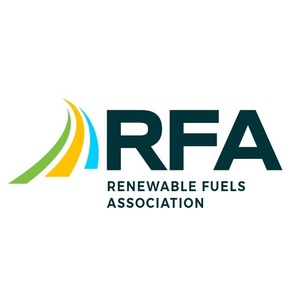RFA: Ethanol can jumpstart transition to net-zero emissions

January 12, 2022
BY Renewable Fuels Association
Both electric vehicles and the increased production and use of renewable fuels like ethanol will be necessary to achieve a national goal of net-zero carbon emissions by 2050, Renewable Fuels Association President and CEO Geoff Cooper told the House Agriculture Committee today.
“While increased deployment of electric vehicles will indeed play a vital role in reducing GHG emissions from transportation, other complementary solutions will also be required to truly decarbonize the sector by mid-century,” Cooper said in his submitted testimony. “That’s where agriculture comes in. Through the increased production and use of low-carbon renewable fuels like ethanol, the U.S. agriculture sector offers an effective and immediate solution for further reducing carbon emissions from liquid fuels across all segments of the transportation sector.”
An increased role for low-carbon biofuels is especially important in the near term, given the relatively small number of electric vehicles and barriers to EV adoption, Cooper said. The U.S. Energy Information Administration forecasts that roughly 80 percent of new light-duty vehicles sold in the U.S. in 2050 will be powered by an internal combustion engine. “Even with increased electric vehicle sales expected in the years ahead, it would take decades to entirely turn over the fleet. As such, hundreds of billions of gallons of liquid fuel will continue to be used in ICE vehicles for many years to come. To achieve true carbon neutrality in the U.S. transportation system by mid-century, strategies focused on decarbonizing those liquid fuels will need to be undertaken.”
Advertisement
Today’s corn ethanol already reduces greenhouse gas emissions by roughly half, on average, compared to gasoline, Cooper told the lawmakers. According to the Department of Energy’s Argonne National Laboratory, typical corn ethanol provides a 44-52 percent GHG savings compared to gasoline. “With the rapid emergence of new technologies and more efficient practices, even greater GHG reductions are coming to the corn ethanol sector,” Cooper said, noting that RFA’s board of directors last summer adopted a commitment to reach net-zero carbon emissions, on average, by 2050 or sooner. Cooper said this requires, in addition to a level playing for lifecycle GHG analysis, “certain policy and regulatory actions … to fully leverage the potential of agriculture and biofuels to decarbonize transportation.” These include:
•The removal of EPA’s arcane fuel volatility barrier, which would facilitate the rapid expansion of E15 in the marketplace.
•Implementation of strong Renewable Fuel Standard volume requirements in 2023 and beyond to ensure low-carbon biofuels have access to a growing market.
•Incentives that encourage automakers to increase
Advertisement
•Additional public and private investment in the infrastructure necessary to distribute higher ethanol blends like E15 and flex fuels like E85.
•Future decarbonization policies that take a technology-neutral, performance-based approach to focus on reducing carbon emissions and increasing fuel efficiency without dictating the use of specific fuels or vehicles.
Related Stories
Saipem has been awarded an EPC contract by Enilive for the expansion of the company’s biorefinery in Porto Marghera, near Venice. The project will boost total nameplate capacity and enable the production of SAF.
Global digital shipbuilder Incat Crowther announced on June 11 the company has been commissioned by Los Angeles operator Catalina Express to design a new low-emission, renewable diesel-powered passenger ferry.
International Air Transport Association has announced the release of the Sustainable Aviation Fuel (SAF) Matchmaker platform, to facilitate SAF procurement between airlines and SAF producers by matching requests for SAF supply with offers.
Alfanar on June 20 officially opened its new office in London, further reaffirming its continued investment in the U.K. The company is developing Lighthouse Green Fuels, a U.K.-based SAF project that is expected to be complete in 2029.
ATR and French SAF aggregator ATOBA Energy on June 19 signed a memorandum of understanding (MOU) to explore ways to facilitate and accelerate sustainable aviation fuel (SAF) adoption for ATR operators.
Upcoming Events










